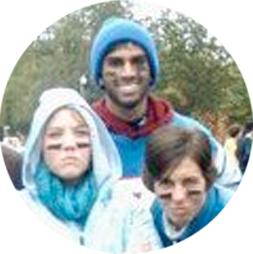The Normandy 2 is a revolutionary ship in many ways, optimized by Cerberus and originally the Systems Alliance for long-term reconnaissance missions and stealth attacks. It seems like every mission is on a whole new world another thousand light years away traveled in a moment through Mass Relays. Metropolises, jungles, volanic environment, near-zero blizzards, scorching wastelands, the list goes on. So it came to my surprise when a couple missions of interest were all located on one world- on a sprawling cityscape I had never heard of. It lined up that two potential recruits were currently at Illium for different reasons and even Miranda promised her loyalty if I would resolve a chasm of her past down on planetside as well. So going in, I knew I might in there for quite a stay, especially if recruiting either of these agents was anything like the challenge of recruiting Tali was. It turns out, a surprisingly large majority of my time on Illium was actually spent on things not at all related to any of these missions.
"The perfect city experience, for those who can afford it." is how the asari guide that monitored my landing described Illium. She led me another asari on the trading floors who had a message for me. I was briefly taken aback when an outside force seemed to possess her as she talked. It turned out be the Rachni transmitting through her- a species, labeled as evil, which I spared from full extinction on Noveria some years ago. "The galaxy isn't ready for the return of the Rachni race", said the asari when pressed for their new location. It was a decision that I made that came back to serve me apparently as they vowed their support for my cause one day.
Another decision from a past life (literally) reemerged at the surface when I ran into Gianna Parasini, a intern on Noveria whom I helped put the corrupt Research Director behind bars with. It was originally my choice to let the Director slide (at a high profit to me) versus conducting a fetch quests to gather the necessary evidence to convict him. I also talked the Director down from killing himself and Gianna once exposed, and so it was an unique thing to see a face that wouldn't have been there if I had made just another easy decision. The conversation and short side quest we had, had no bearing on any mission of mine, but essentially, it was good to see her again.
Yet ANOTHER face from a past life emerged at the bar in the form of a hopeless fanboy of mine, Conrad Verner. He was so enamored with the Spectre lifestyle back on the Citadel, the moment I bared even a little outside of my normal fan service, it went to his head modifying his actions drastically. He said I taught him to "roam the galaxy and truly be extreme". I very nearly shot him in the foot. But at the end of the day, again, it was good to see him.
[Controller: Weird how the previous system remains so tied to this one. Catching up with "old friends"?]
Illium



